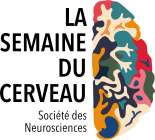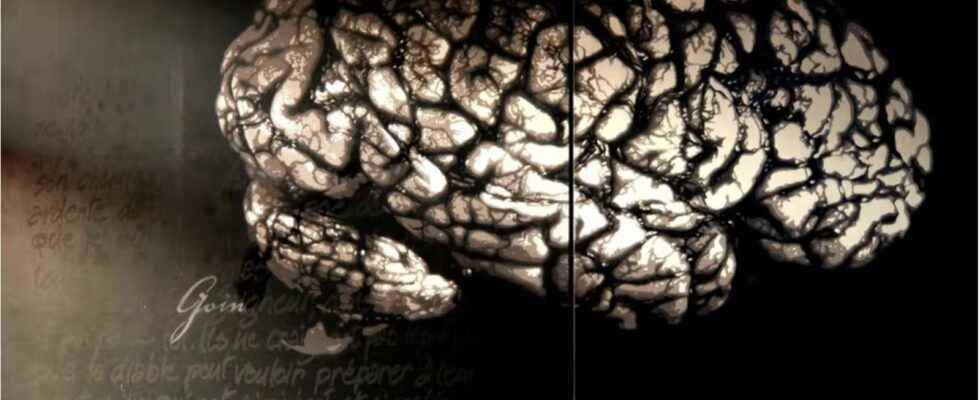Fatigue, in the common sense, is a feeling of weakness physical or cognitive, and results in difficulty in continuing the effort. The physical limits of human performance have been studied for a considerable time.
From the 1890s, two works by the Dr Fernand Lagrange and Dr. Angelo Mosso mark the beginning of the history of the study of the phenomenon of muscle fatigue during exercise in humans. Most of the research work during the XXand century have focused their attention on the musculoskeletal muscles, the lungs or the heart, all considered as one of the possible major organic determinants in the etiology of fatigue and therefore of exercise performance.
The role of the brain in fatigue
Much of the literature has for many years ignored the importance of the brain in regulating physical performance. However, muscle fatigue was suggested at the beginning of the 20thand century as a physiological process associated with a sensation involving the brain as a decision-making organ, a kind of regulator to preserve the body from any catastrophic disorder caused by an exercise carried out until the exhaustion of its physiological reserves. We can see that this “catastrophe” approach set out more than a century ago is in line with the most contemporary approaches to muscle fatigue (model known as the “ flush » or model psychophysiological) debated through the so-called central governor model.
With the introduction and development of new devices (neuroimaging equipment and stimulation cerebral) non-invasive, knowledge about the behavior of the brain during exercise has progressed. A first step was carried out based on studies using neuroimaging methods that make it possible to identify different active areas of the brain during muscular exercise.
In addition, during the last decade, a non-invasive technique of cerebral stimulation by application of a weak Electric power (1-2mA) via from electrodes has been at the heart of intense research in the quest to alter the way our brain works. On reading scientific publicationsone is tempted to believe that the application of transcranial stimulation to direct current (tDCS) on different areas of the brain can increase physical performance. But what is it really?
Significant lack of evidence for the effects of brain stimulation on performance
The number of experimental studies on the effect of tDCS on exercise performance is growing rapidly, but with important methodological limitations to consider. To date, the number of studies is still limited and the physiological mechanisms by which tDCS could improve physical performance are partly unknown. The potential improvement in physical performance identified for some studies seems to result from a greater transient activation of neurons cortical after a short sequence of 10 to 20 min of tDCS.
However, few studies have measured brain activity after and during (online effects) a sequence of tDCS coupled with exercise. Second, the spread of electric field induced in the brain by tDCS is very diffuse. Third, the vast majority of studies are based on very small sample sizes, which could increase the likelihood of false positive results as is often the case in neuroscience. Finally, the absence of a blinded procedure may have led to a number of undesired confounding psychological effects which may have played an important role in the excessive variability of the results observed.
Stimulating the brain to boost performance: towards neuro-doping?
Some authors have already argued that tDCS can be considered as a new form of doping, although skepticism about the validity and reproducibility of tDCS effects has also been stated. tDCS can potentially improve sports performance in two ways, either by modulating brain activation just before a sports event or by reorganizing the activity of the cerebral cortex after multiple applications (hypothesis of greater neural efficiency). As discussed in the previous section, the meta-analyses recent studies have a very reserved position on the acute effects of tDCS on performance and no study has yet been conducted on the effects of chronic administration of tDCS on physical performance.
Despite recently undertaken experimental research on the possibility of tDCS to improve physical performance, its application has rapidly evolved outside the laboratory. Indeed, several tDCS devices are available to the public and many athletes or professional team or not claim to have adopted tDCS during their training programs.
Whether this represents a violation of the spirit of sport and whether tDCS poses an actual or potential health risk to the athlete remains to be determined.
In the field of sports doping, cerebral stimulation was already experimented with by Soviet athletes in the 1970s. the potential for improving athletic performance. Whether this represents a violation of the spirit of sport and whether tDCS poses an actual or potential health risk to the athlete remains to be determined.
Althoughno side effects serious adverse event has been reported in healthy participants, many uncertainties exist regarding the prolonged use of tDCS. Determine whether or not an athlete has used a protocol of tDCS before a competition is impossible and could open an unprecedented scenario for doping control strategies
More worrying of a ethical point of view and regulatory, the “do it yourself” concept quickly grew, with online forums and social media offering kits and instructions on how to build tDCS devices to improve cognitive abilities. or physical.
These devices are not approved by official bodies, such as the Food and Drug Administration. Attempts to stimulate the brain with “homemade” electrical devices are not new and have been known since the end of the 19th century. Although tDCS is not considered a way to improve physical performance due to a lack of convincing evidence, it could add “marginal” gain, which could be enough to provide a high-level advantage. Whatever the potential of tDCS, its use must be based on rigorous evidence and not respond to commercial ends and the blow of hype built on anecdotal facts.
In addition to the workshops offered throughout France by the Society of Neurosciences, at the origin of Brain Week, Futura highlights the latest scientific advances concerning our ciboulot. Cognition, psychology or even unusual and extraordinary stories, a collection ofitemsof questions answers and of podcast to be found all this week under the tag ” brain week » and on our social networks!

Interested in what you just read?
